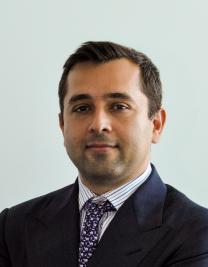 |
| Vahid Fotuhi, President & Founder, Middle East Solar Industry Association (MESIA) |
The government of Jordan executed the power purchase agreements (PPA) related to the first phase of its direct proposal program involving 200MW of solar power.
These projects are dotted throughout the country, in Ma’an, Maraq and Aqaba. In doing so, Jordan has become the first country in the Middle East to successfully launch and complete a solar procurement program.
By Vahid Fotuhi
President & Founder
Middle East Solar Industry Association (MESIA)
This is exemplary considering all the social and economic challenges that the country has been facing. Since the Arab Spring, Jordan has been plagued with a double-edged sword of dramatically higher fuel costs and soaring electricity demand.
Deprived of any meaningful hydrocarbon reserves, Jordan has had to import natural gas from Egypt. But when those supplies were disrupted in 2011, Jordan was forced to turn to the international oil markets and import very expensive crude and fuel oil to keep its power plants running. This has burdened the country’s utility with a deficit of over $1 billion per annum and push up Jordan’s levelized electricity cost to over $0.20/kWh, among the highest in the world.
Meanwhile, with the outbreak of war in Syria, Jordan has been overwhelmed with ever-rising number of refugees entering the country. Today, the fourth largest city in Jordan is in fact a refugee camp. This has had a major impact on the country’s electricity demand, just at the same time as its cost of producing that electricity has climbed.
Faced with such adversities, many countries would have fallen into a sea of civil chaos. But to its credit, Jordan has decided to tackle these adversities head on. This includes a full-fledged effort to meet the growing demand for power by harnessing a natural resource which it has an abundance of: solar.
In recent years, the solar spotlight in the Middle East has been focused on Saudi Arabia. The titanic size of the solar program has dwarfed the efforts being made by all the other countries in the MENA region.
In Jordan, whilst the government’s announced targets remain modest, it’s near term actions have been exemplary.
The country’s Electricity & Regulatory Commission (ERC) along with the Ministry of Energy and Mineral Resources (MEMR) and NEPCO, the state utility company, have worked closely in putting together the framework for a direct proposal program involving  large-scale solar IPP projects.
On the back of these achievements, the Middle East Solar Industry Association (MESIA) awarded ERC with the 2013 Policymaker of the Year Award while NEPCO scooped the Utility Company of Year Award at the Middle East Solar Awards in Abu Dhabi in November 2013.
Today, Jordan is buzzing with solar activity. The 12 companies that have successfully signed the PPAs are now in flurried negotiations with lenders to bring these projects to financial close within the 6-month deadline set by NEPCO. At the same time, some 30 companies have pre-qualified for round 2 of the direct proposal process.
These companies are now brushing through the Jordan countryside looking for suitable plots which they can use as part of their bid proposals due in July 2014. And for those who were caught sleeping in rounds 1 and 2, the government has introduced a third round of direct proposals.
With submissions due in May, companies around the world are now flying to Amman to explore how they can support Jordan’s impressive solar program. In total, these projects are expected to generate $560 million in direct investments in Jordan, according to EDAMA. This excludes the landmark 117MW wind farm in Tafieleh awarded to JWCP which will generate a further $202 million for Jordan.
Through these solar and wind initiatives, Jordan has taken a big step towards become a key market for renewable energy in the Middle East. And given the pipeline of off-grid and ‘behind the meter’ solar projects that are in the planning phase, its role as a regional leader is likely to only get stronger in the years ahead.
Vahid Fotuhi is the President of the Middle East Solar Industry Association [MESIA] and Head of Strategic Advisory at Access.